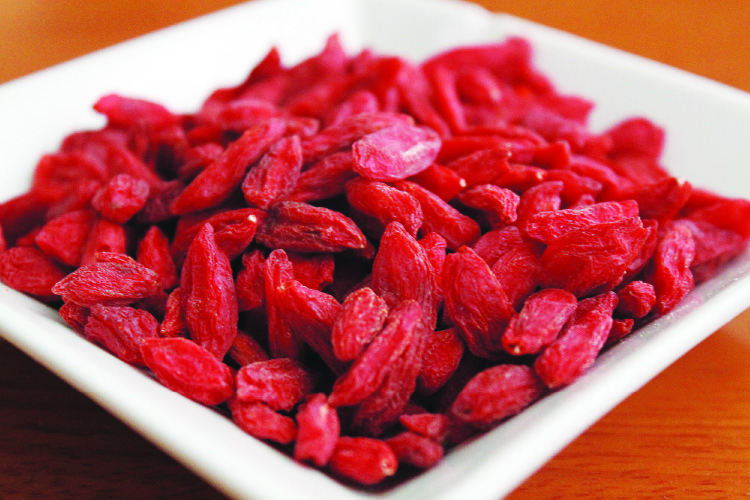The effectiveness of traditional medicine must not be brushed off. The conception that Chinese herbs taste horrid and are difficult to prepare does not hold too, for the four herbs listed are easy on the palate, are a breeze to consume and best of all, are packed with benefits for your eyes.
Table of Contents
Chinese wolfberries
Chinese wolfberries are probably the most widely-used herb for eyecare and are known by many other names – goji berries, lycium fruit, boxthorn fruit, gou ji zi in Mandarin or kei chi in Cantonese. The wolfberries are the perfect supplement for those who have dry eyes from spending hours on the computer as well as those suffering from poor eyesight as a result of inflammation, malnutrition and vessel expansion. A good thing is that these berries aren’t a chore to eat like most Chinese herbs. They are sweet and can be added to desserts or just soaked in water and drank as a tea.
Not only are Chinese wolfberries good for the eyes but they also nourishing for the liver and kidneys. That’s even more reasons for you to indulge in these red little berries.
Chrysanthemum ( ju hua)
Chrysanthemum is another commonly used herb for eye care. Chrysanthemum is effective for the reduction of redness, pain, swelling or tiredness in the eyes. People with blurred vision and near-sightedness will benefit from chrysanthemum too. The dried flower makes a great sweet-tasting tea with a slight bitter aftertaste when soaked in hot water and drank. Ideally, the tea should be drank up to three times a day for best effect.
Mulberry leaf (sang ye)
Another part of the plant good for soothing swollen, itchy, red or painful eyes are mulberry leaves. The leaves of the mulberry tree are also remedy for blurred vision, dizziness and headaches. Since mulberry leaves are great as a tea too, pop a handful of them into your chrysanthemum tea to make a very nutritious drink for the eyes.
Ligustrum (nu zhen zi)
If you suffer from dry eyes or find that your vision gets blurry after spending many hours on the computer or television, ligustrum is one herb that would help as it possesses anti-inflammatory and antibiotic properties. Preparation of ligustrum is just as easy as mulberry leaf or chrysanthemum tea; simply boil 10-15g of ligustrum in water for about 20 minutes before straining and drinking the infused water. Ligustrum is also good for the liver, so you might want to drink more of the infusion for better health.
















